
When I was a kid and jumped to conclusions about something, my father often said, “Hold your horses, son.” That’s an old saying that means, “Whoa! Stop and think carefully before making a decision.” Dad had a lot of wisdom. He knew that one of the most important lessons he could teach me from an early age was to think before taking action.
There’s talk these days about “deferring judgment” when discussing ideas or hearing the opinions of others. That’s another way of saying “hold your horses.” The concept of delaying judgment has been around for a long time. In fact, it was popularized in the advertising industry by Alex Osborn, a co-founder of the BBDO ad agency. Osborn incorporated judgment deferral in his rules for creativity because he understood the value of encouraging judgment-free discussions of just-proposed ideas. In his writings, he labeled his system as “brainstorming,” a term that has evolved into a general description of creative thinking.
It takes patience to defer judgment. We’ve all been in meetings where ideas bounce around the room. Somebody mentions the first glimmer of an ad idea, and before you know it, someone else says, “No, let’s consider this other idea.” As a result, the first idea dies on the spot – and the discussion narrows in focus, often with the most outgoing person in the room taking center stage. That’s not good for authentic brainstorming. And it’s not good for the person whose idea was just suppressed.
At this stage in the process, the objective is to gather as many ideas as possible. Encourage ideas to flow, so people can build on each other’s creative thinking. Be patient and listen.
Consider Melanie, an ad salesperson who was confronted with a client who wanted to run a big headline that boasted, “We’re the popular choice” – an empty claim with no evidence to back it up. “I cringed when I heard that,” she told me, “but I didn’t interrupt his train of thought. I told myself to approach his idea as the beginning of the conversation, not something to take a stand against. So I asked questions and listened for possibilities. Along the way, he mentioned that he had recently received compliments about his store’s customer service. As he talked, I realized that testimonials could make the concept of popularity come to life. He liked that idea, and we ended up with a campaign which featured a quote from a different loyal customer in each ad – along with that person’s photo.”
Melanie’s advertiser was happy with the outcome but more important, her approach strengthened their marketing partnership. There wasn’t any magic involved. It was simply a matter of deferring judgment and soaking up as much information as possible. The advertiser’s original idea – as weak as it was – got the ball rolling in the right direction.
The point of all this is to slow down. When you hold your horses a little longer, a better idea may gallop into the picture.
(c) Copyright 2022 by John Foust. All rights reserved.


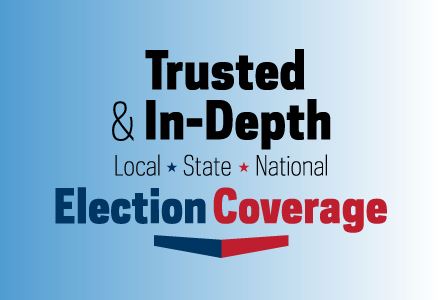

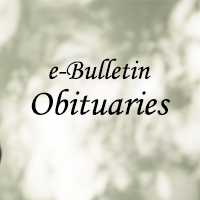
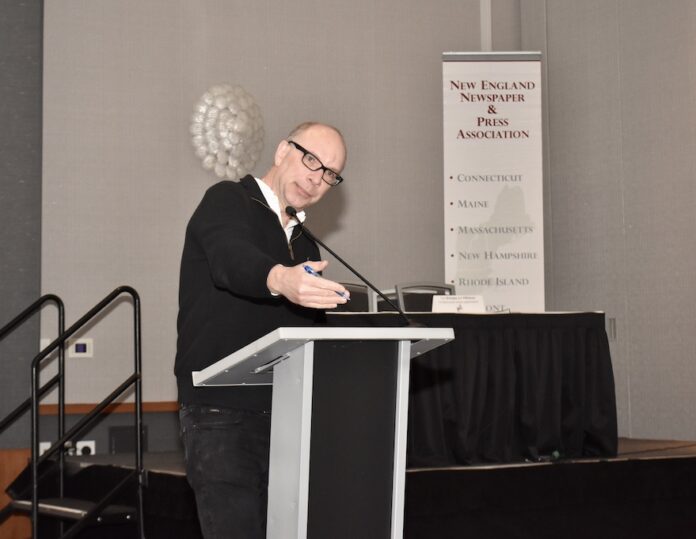
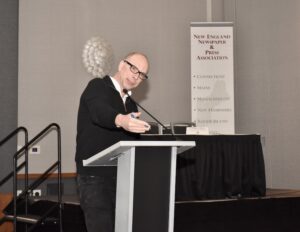 Professor Jay Rosen from New York University presented what he describes as a more engaging and people-centric form of election coverage known as the “citizens agenda” model during the second day of programming Saturday, April 30 at the NENPA convention in Boston.
Professor Jay Rosen from New York University presented what he describes as a more engaging and people-centric form of election coverage known as the “citizens agenda” model during the second day of programming Saturday, April 30 at the NENPA convention in Boston. 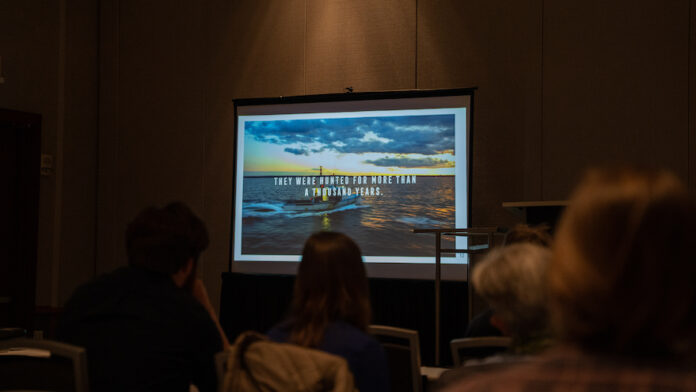
 One of the biggest stories of our time is climate change and the struggle to reverse its human-caused effects. On April 30, 2022, during the NENPA Convention in Boston, five panelists sat down and discussed the issue of climate change and related reporting.
One of the biggest stories of our time is climate change and the struggle to reverse its human-caused effects. On April 30, 2022, during the NENPA Convention in Boston, five panelists sat down and discussed the issue of climate change and related reporting.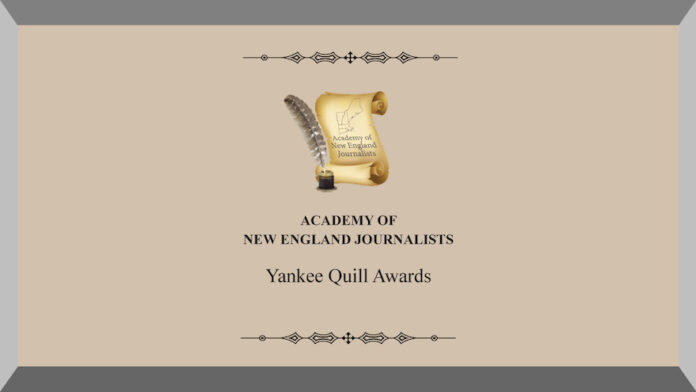
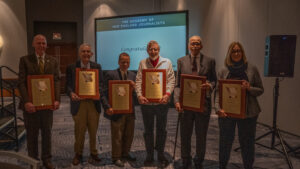 The Yankee Quill Award recognizes New England journalists who have provided great contributions and excellence to the field in the region. This annual award, which was first given out in 1960, is presented by The Academy of New England Journalists. This year’s six recipients were celebrated during a luncheon at the New England Newspaper & Press Association’s annual convention in Boston on April 29, 2022.
The Yankee Quill Award recognizes New England journalists who have provided great contributions and excellence to the field in the region. This annual award, which was first given out in 1960, is presented by The Academy of New England Journalists. This year’s six recipients were celebrated during a luncheon at the New England Newspaper & Press Association’s annual convention in Boston on April 29, 2022.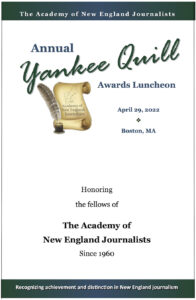
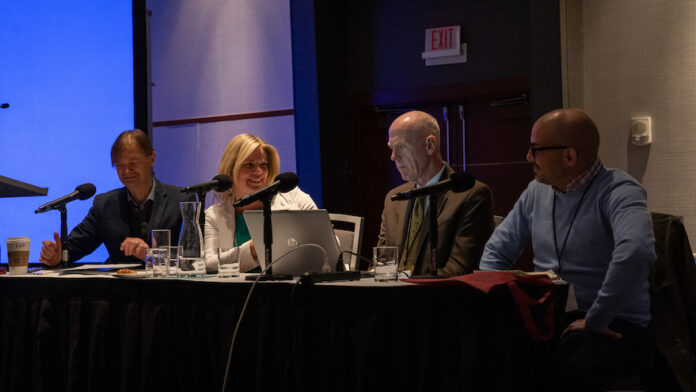
 On April 29, 2022, during the NENPA convention in Boston, attendees were introduced to the concept of Funding Journalism with Innovative News Labs and how they work to provide greater focus on specific communities and local issues that many news outlets overlook.
On April 29, 2022, during the NENPA convention in Boston, attendees were introduced to the concept of Funding Journalism with Innovative News Labs and how they work to provide greater focus on specific communities and local issues that many news outlets overlook.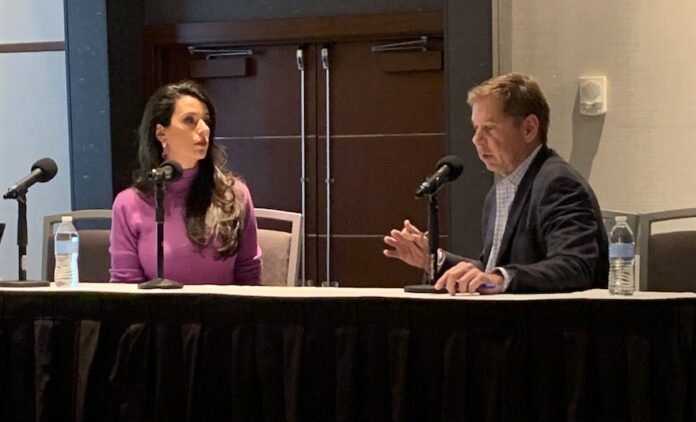
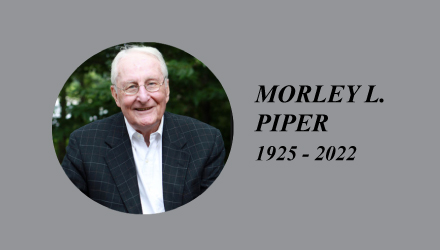
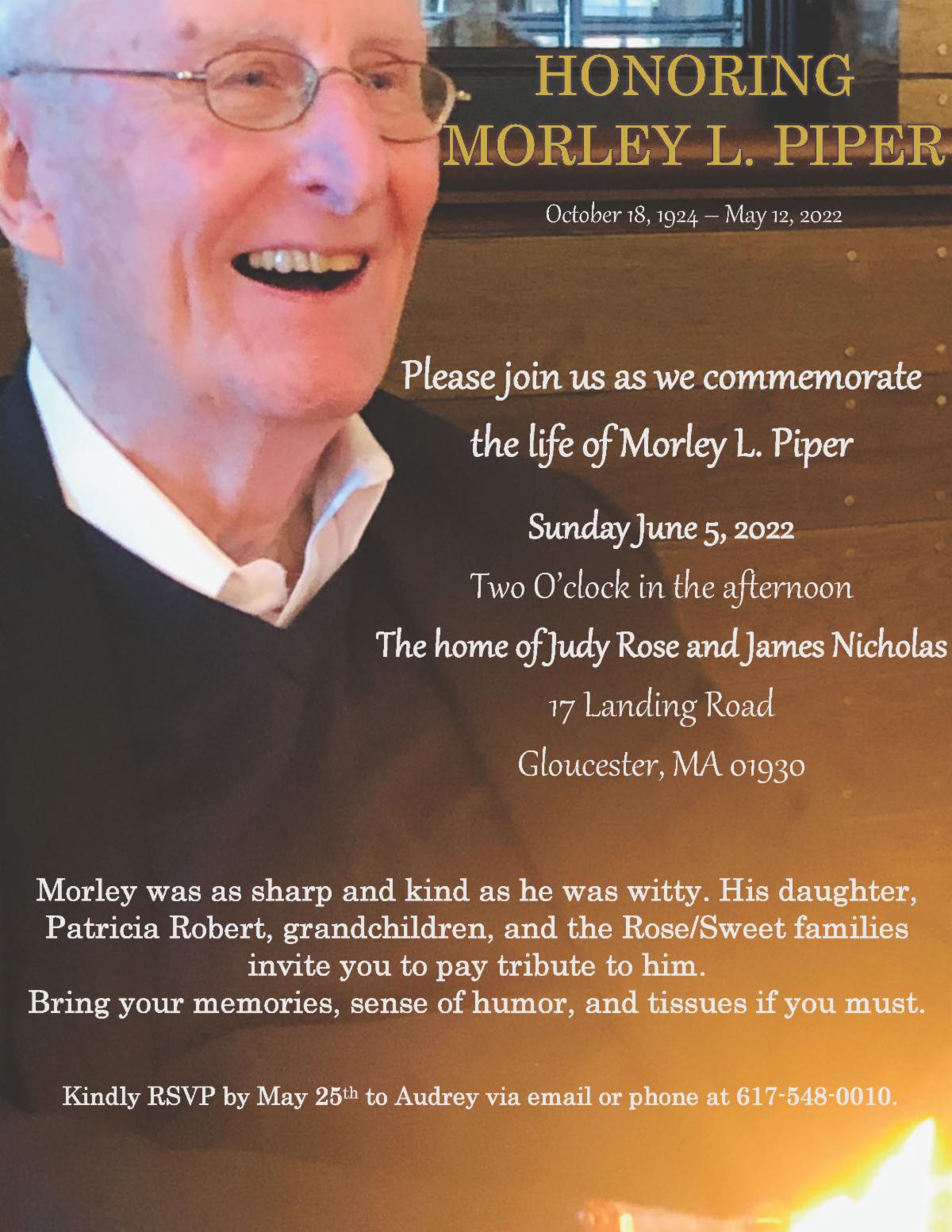
NEFAC Provides Expert Speakers for University of Massachusetts Journalism Workshops
The New England First Amendment Coalition is providing workshop instructors to the University of Massachusetts Amherst as part of the group’s First Amendment and the Free Press program.
NEFAC launched the program in 2018 to help educate the public about the role journalism plays in the country. The program brings reporters, academics, and legal scholars onto campuses and into the region’s classrooms and community centers.
With NEFAC’s support, those below will participate in the university’s “Digital Media & Journalism: Shared Narratives,” a series of workshops and discussions for young Pakistani journalists. The workshops are part of the Civic Initiative at the University of Massachusetts Donahue Institute.
Gregory V. Sullivan | Sullivan has served as general counsel for the Union Leader Corporation for the past 40 years. He has represented Union Leader and many other media organizations regarding First Amendment issues in federal and state courts.
Felice J. Freyer | Freyer covers health policy and public health for The Boston Globe. She joined the Globe in 2014 after years as the medical writer for The Providence Journal, where she was awarded the “Master Reporter” award from the New England Association of Newspaper Editors.
Annie Ropeik | Ropeik is the environment and climate change reporter for Spectrum News Maine. She previously spent about a decade as a public radio journalist, reporting from NPR member stations in New Hampshire, Indiana, Delaware, and Alaska’s Aleutian Islands.
Since its launch, NEFAC’s First Amendment and Free Press program has provided more than 150 presentations, workshops, and lectures. Please email justin@nefac.org with your presentation needs.
Learn more